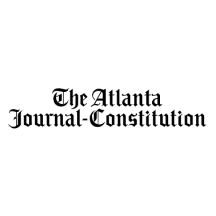After nearly two days of ceremonies, UK Prime Minister Keir Starmer faced a crucial moment during a press conference with U.S. President Donald Trump. The event marked the conclusion of Trump's unprecedented second state visit to the UK, where he aimed to charm the American leader known for his affinity for royalty and grand occasions.
During the nearly hour-long press conference, the two leaders addressed various pressing topics, including the conflicts in Gaza and Ukraine, Palestinian statehood, and issues surrounding free speech. One of the most contentious points was the UK’s plan to support Palestinian statehood at the upcoming UN General Assembly. Trump expressed his disagreement with Starmer on this issue, stating, "I have a disagreement with the prime minister on that score, one of the few disagreements actually." Starmer acknowledged the topic was discussed prior to the press conference, emphasizing that recognition should be viewed within a broader peace plan.
Starmer articulated that the recognition of Palestine, along with humanitarian aid and the release of hostages, is part of a comprehensive approach to achieving a secure Israel and a viable Palestinian state. When asked if recognizing Palestine could empower Hamas, Starmer firmly stated, "[Hamas] is a terrorist organization who can have no part in any future governance of Palestine," which prompted a supportive response from Trump.
As the Israeli military continues its operations in Gaza, a reporter pressed Trump on his responsibility to intervene. Trump responded by referencing the events of October 7, which he described as "one of the worst days in the history of humanity." He indicated that the return of hostages would influence his ability to pressure Israel to halt its military actions, saying, "It would certainly help, but I have to have the hostages back. And I don’t want them back piecemeal."
On the topic of Ukraine, Trump reiterated his belief that he could resolve the conflict quickly, but expressed disappointment in Russian President Vladimir Putin, stating, "He has really let me down." Starmer noted that increased pressure on Putin was necessary, citing recent Russian aggression as evidence of the need for a stronger response.
Trump also mentioned the U.S. desire to regain control of the Bagram air base in Afghanistan, highlighting its strategic importance. He stated, "We’re trying to get it back," referencing its location in relation to China.
The press conference also touched on the sensitive issue of Jeffrey Epstein, with Trump downplaying his connection to the convicted sex offender. When asked about the recent sacking of the UK ambassador to the U.S. over ties to Epstein, Trump claimed, "I don’t know him actually," despite previous photographs together. Starmer clarified that the decision was based on new information that emerged after the ambassador's appointment.
Migration was another significant topic, with Trump suggesting that Starmer could utilize military resources to manage the UK’s borders. Starmer defended the current policy of returning migrants who cross the English Channel to France, asserting its effectiveness.
In a lighter moment, Trump commented on the recent suspension of late-night host Jimmy Kimmel, attributing it to poor ratings rather than any political motivations. He stated, "Jimmy Kimmel is not a talented person, he had very bad ratings and they should’ve fired him a long time ago."
Despite the serious discussions, the press conference concluded with a significant announcement. Starmer and Trump signed a landmark technology partnership, which includes commitments from U.S.-based tech and finance companies totaling £150 billion ($307 billion). This partnership aims to enhance collaboration in artificial intelligence, quantum computing, and nuclear energy, marking it as the largest investment package in British history. Starmer hailed the agreement as a testament to the enduring special relationship between the two nations, with Trump echoing that sentiment, stating, "I think it’s an unbreakable bond we have."
The press conference encapsulated the complexities of international relations, with both leaders navigating sensitive topics while also celebrating a significant economic partnership.

 Australia News
Australia News

 Sky News Australia
Sky News Australia ABC News AU
ABC News AU Reuters US Top
Reuters US Top The Babylon Bee
The Babylon Bee The Atlanta Journal-Constitution Sports
The Atlanta Journal-Constitution Sports